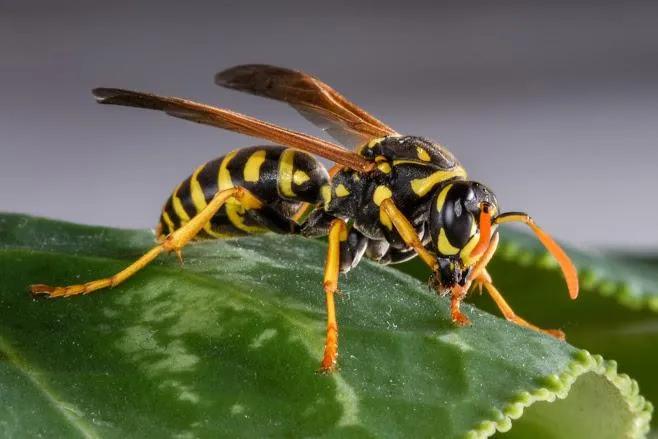Murder Hornets, Wasps, Bees, and What You Need to Know
What's a murder hornet and is it something homeowners need to worry about? While the name may sound scary, the Asian giant hornet (a.k.a. the murder hornet) isn't a threat in the Midwest. If you have buzzing pests in or around your home, take a look at what you need to know about murder hornets and other stinging invaders.
Are Murder Hornets a Threat?
With a name reminiscent of a horror movie title, the murder hornet sounds like an ominous invader to avoid. Even though the name paints a not-so-pretty picture, this hornet:
- Doesn't want to hurt you. The murder hornet poses a threat to honeybees, not humans. Even though its sting is severe, the Asian giant hornet is less of a threat to humans than it is to bees. But that doesn't mean you should go near one. Always stay away from any type of hornet.
- Isn't a problem in the Midwest. While this hornet has made its way to the United States, it isn't an issue in the Midwest region. According to Purdue University, it's unlikely there are currently murder hornets in the Indiana area.
- Does look intimidating. These hornets are large in size and have a noticeable bold yellow–hued head.
Even though the name and appearance may strike fear in your family, unless you're a honeybee, you don't have to worry about the murder hornet. But this doesn't mean the invasive invader won't affect anyone in the U.S. Honeybees are essential pollinators necessary for crop growth. Without the ability to defend themselves, honeybees are potentially at risk.
Are Other Hornets a Problem?
While the murder hornet is less common in America, other hornets are found throughout the country. The bald-faced hornet is common in most areas of the United States. This type of hornet:
- Looks like a wasp. You may mistake a bald-faced hornet for a wasp. According to the National Pest Management Association's (NPMA) PestWorld website, the hornet has a long, wasp-like shape with a white patterned face.
- Builds a suspended nest. If you're not sure whether your home has an infestation, look for a suspended nest. You'll see worker hornets near or around the area.
- Can enter your home. Even though the hornet lives in a nest, it can enter your home through holes or cracks in an exterior wall.
If you have a bald-faced hornet nest or other infestation, stay away from the invaders. These insects can sting — and will if provoked. Call a pest control professional as soon as possible to eliminate the issue in a safe and effective way.
Are Wasps and Bees Similar to Hornets?
Wasps and bees often look like hornets. But are these buzzing bugs the same (or similar to) hornets? While each invader is different in some ways, wasps, bees, and hornets:
- May nest in groups. Social wasps, bees, and hornets nest together. If you're not sure what type of nest is in your yard or on your home's exterior, a pest control professional can identify the invader.
- May enter your home. Like hornets, wasps and bees may enter your home through cracks in exterior walls.
- May sting. Wasps and bees can (and will) sting if they feel threatened. While neither will actively seek out humans, they will sting if provoked. This means you should stay far away from anything that looks like a wasp or bee.
Never attempt to remove a wasp or bee nest from your home. Even though you may want to eliminate the issue immediately, failure to take proper safety precautions could put you (or your family) at risk.
Does your home have a hornet, wasp, or bee invasion? Contact
American Pest Professionals for more information.










